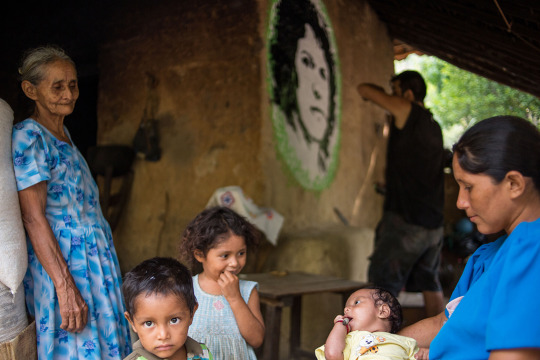
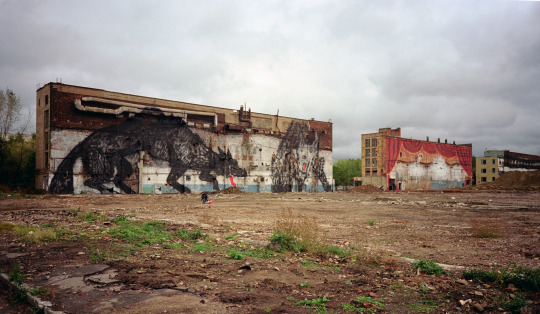
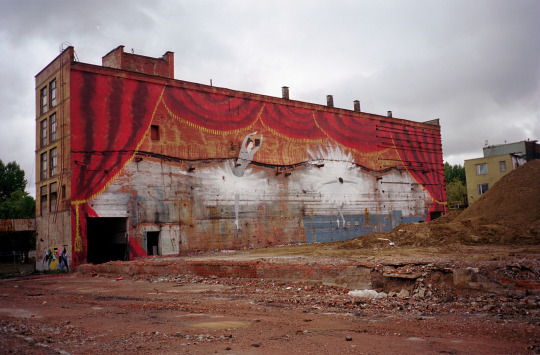
3 buildings painted by 0331c& Grisha Shto with fire extinguisher and
1500 liters of latex paint.
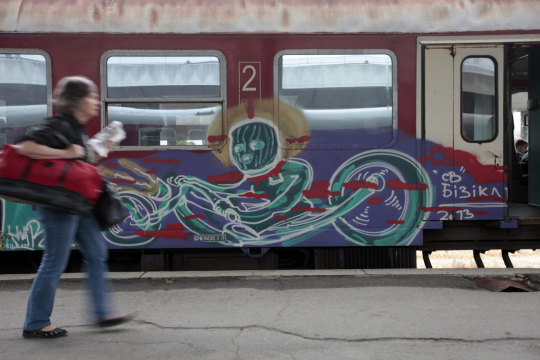
5 Bulgarian trains by Shlomo in 2013 (extracted from the depths of my mailbox)
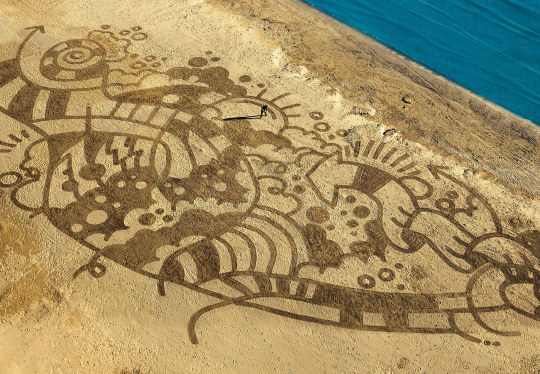
and a few more cats from Lunar…

2 new walls from Giulio Vesprini mixing abstract shapes and botanical elements.
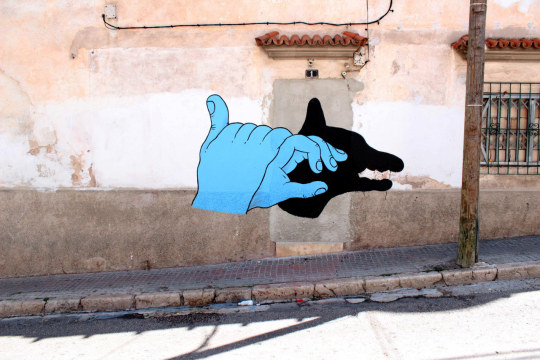
New pieces from Gripface in Palma de Mallorca.
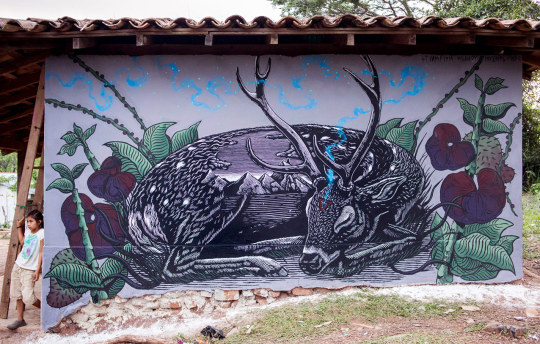
Between the months of April and May of this year we (Kill Joy, Mazatl and Stinkfish) had the pleasure of being in Honduras for four weeks to work on the first stage
of the Cuma Project, an independent initiative in which we visited several rural communities in the Intibuca State that is located in the western part of the country, that borders El Salvador.
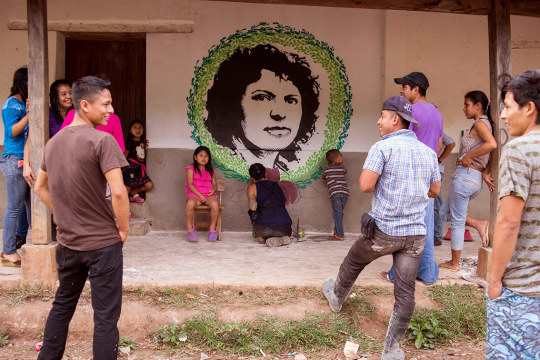
The initial goal of the project, that began to be planned a year from now, was to visit a variety of communities that have been affected by hydroelectric dam mega-projects of multinational corporations along with the Honduran government, in order to to do a series of interventions on school facades and communal houses. Our contact and guides, the COPINH (The Council of Popular and Indigenous Organizations of Honduras) is an organization that for more than 20 years have devoted themselves to the defense of the environment, the land and the local indigenous culture and way of life, the Lenca, primarily in the region of Intibucá, though the organization also functions as a network for other communities’ struggles on a National and International level.
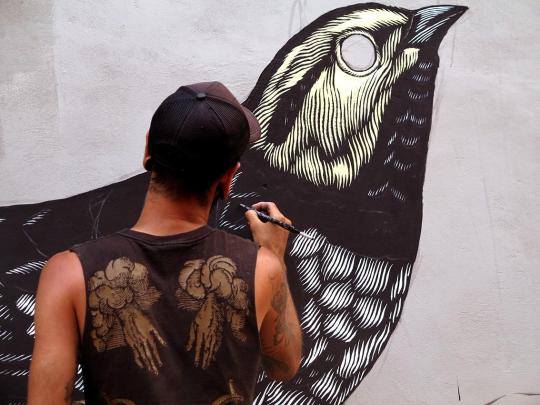
This last 3rd of March, six weeks before we arrived to Honduras, the environmentalist, activist, co-founder and leader of COPINH Berta Cáceres was assassinated in her house. For a moment the continuation of the project was in question due to the security conditions of the region and specifically the communities we had planned to visit, non the less we decided with the encouragement of the COPINH to carry on.
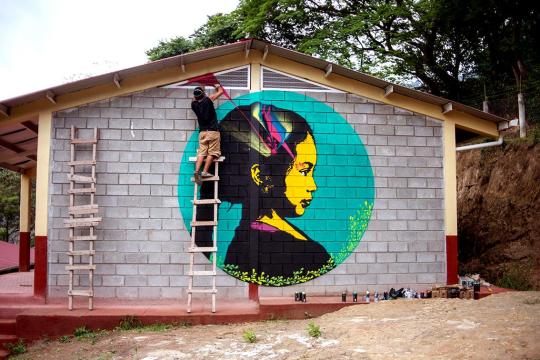
We met up in Tegucigalpa, the capital of Honduras, from there we took buses to La Esperanza, the Capital for the state of Intibucá and where the headquarters of COPINH are. Once we got settled in La Esperanza along with members of the organization we planned our work route for the following three weeks, so that we could visit certain communities as safely as possible and work on our interventions despite the heated environment, the constant harassment and threats after several confrontations with legitimate and illegitimate representatives of the hydroelectric corporations and the assassination of Berta Cáceres.
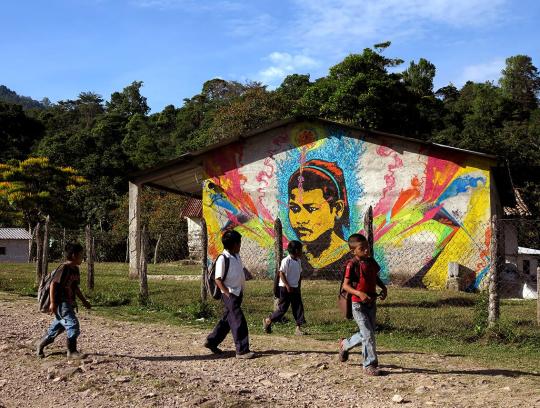
The following three weeks we had
the opportunity to visit the communities of Llano Grande, La Ceibita, Las Delicias, Las Mesitas and Rio Blanco. In their majority communities that can only be accessed by foot, that ironically don’t have electricity and limited means of communication.
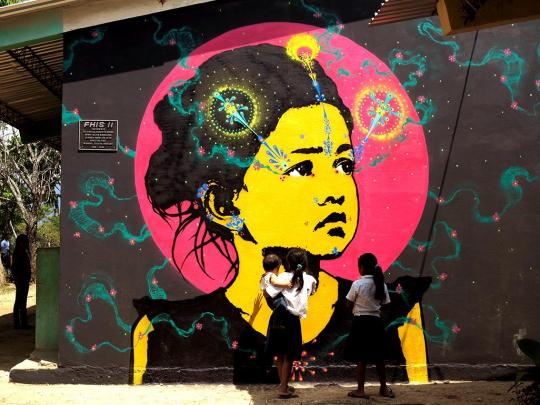
The images the accompany these words are a brief summary of the experiences that we had in those days on the road, in communities that are committed to a struggle for their land, their rivers and their way of life, that shared with us a plate of food, a swim in the river, a soccer match, their experiences, history, knowledge, problems and victories.
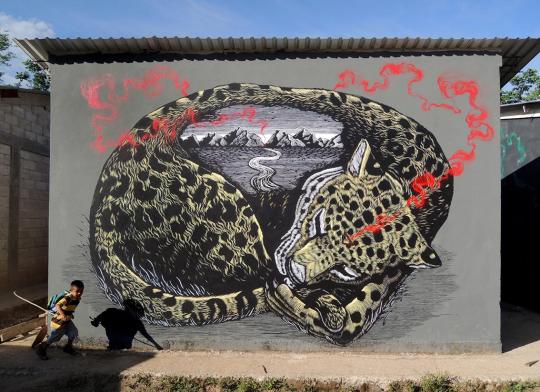
The struggle and work of the likes
of Berta Cáceres and organizations like COPINH lives on in Latin America and
many other regions of the world.
